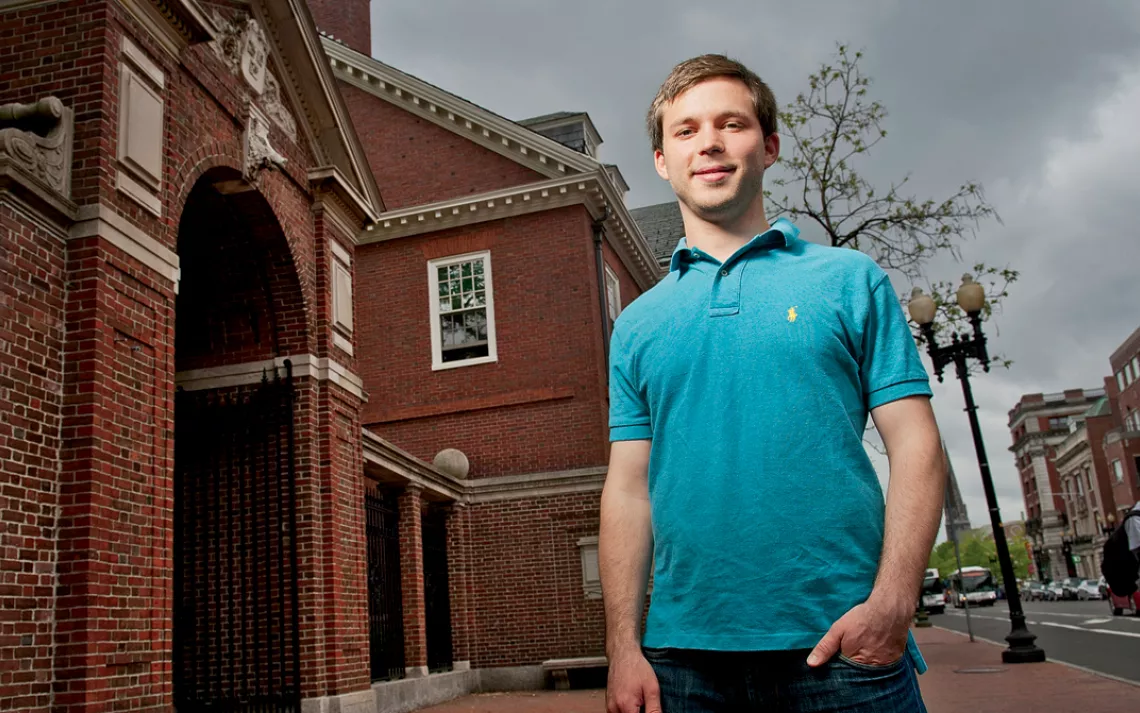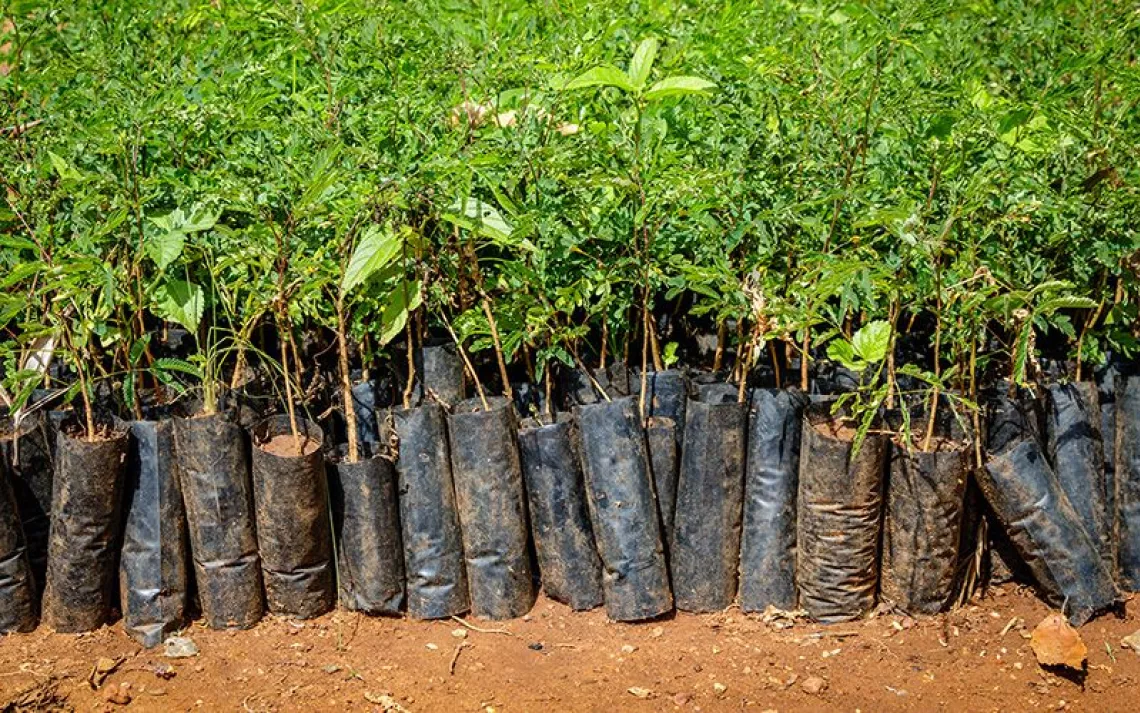Taking Harvard to Task

Samuel Wohns, Cambridge, Mass.; co-coordinator, Responsible Investment at Harvard Coalition | Photo: Webb Chappell Photography
"My freshman year at Harvard, in 2010, I got involved with a campaign to get the university to stop investing in HEI Hotels and Resorts until the company let its employees form a union.
"Over six months of organizing student groups and phone banks and meetings with administrators, I began to see the gap between what was driving the investment decisions made by the Harvard Management Company, which manages the university's endowment, and what was driving research and education on campus. That's really when the Responsible Investment at Harvard Coalition was born.
"One day I got an email from activists in Corrientes, Argentina, who'd been searching for someone who might care that two timber companies, EVASA and Las Misiones—Harvard is the sole stockholder in both—are destroying the Ibera Wetlands and displacing thousands of farmers. Their pine tree monoculture threatens the region's biodiversity, and their expansion forces people off the land.
"I found myself on a plane to South America to investigate. It was brutally hot. The first memory I have of getting off the plane is just sweating profusely. I'll never forget approaching the gates of a timber plantation and thinking, 'I've traveled all this way. I'm in a totally different world. And yet I'm on campus. That's Harvard's property right there.' The pine trees looked like rows of soldiers in the wetlands.
"Locals wrote a letter to Drew Gilpin Faust, Harvard's president, asking her to wield her influence so that these plantations stop expanding and their employees are more protected.
"Faust announced in April that Harvard had signed the U.N. Principles for Responsible Investment, committing the university to considering the environmental and social impacts of its investments. But there have been no changes in Corrientes. We're not asking Harvard to divest from these companies. But there should be a partnership with the local communities so that the world's second-largest wetlands have a future."
LOADED Harvard's $32 billion endowment includes massive investments in California vineyards, a Romanian forestry company, and a Chilean logging company.
 The Magazine of The Sierra Club
The Magazine of The Sierra Club







